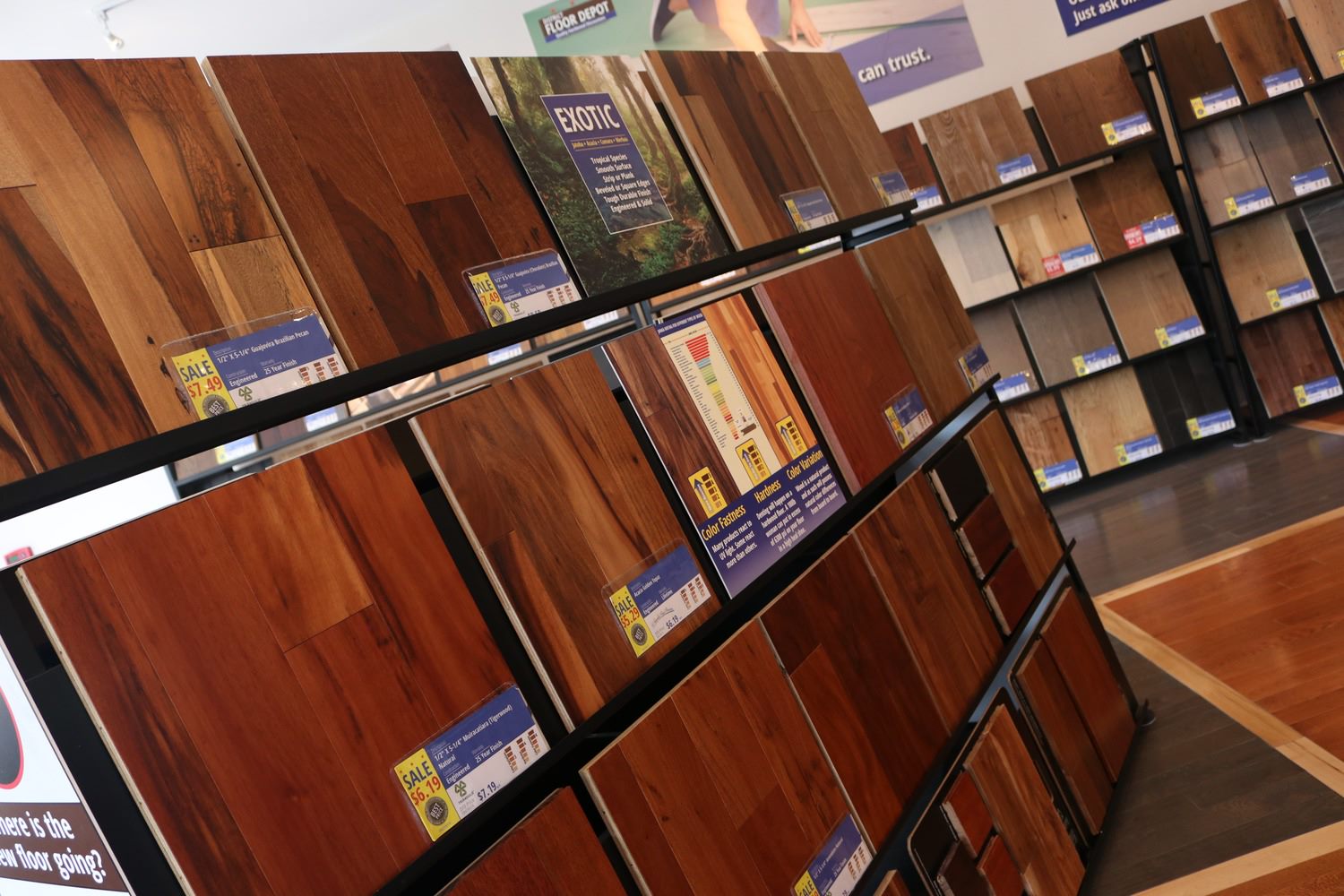Benefits of Solid Hardwood Flooring
- Published By: District Floor Depot

Hardwood floors are rich in history and culture, having been used for hundreds of years. In fact, hardwood flooring was once used in the Palace of Versailles, and remains a symbol of luxury and comfort to this day.
But with the rise of engineered hardwood flooring in the 1960s, solid hardwood flooring lost some popularity. For a few decades in the late 20th century, hardwood flooring was looked at as outdated.
However, it quickly regained it’s position at the front of the line and is still considered to be one of the most durable and elegant flooring types out there.
Did you know that 1 in 2 homeowners are willing to pay more for a home with hardwood floors? Keep reading to find out 5 benefits of using hardwood flooring for your next project.
1. They’re Rich In History
Before the invention of a belt sander, they used to scrape hardwood floors manually with scraper blades across the floor.
In 1926, an American inventor named Art Emmons created a portable, electric, belt floor sander. While hardwood was initially used by European royalty, it was available to Americans in the masses by the Colonial Era.
There are over 100 types of hardwood, making it a choice that includes many interesting options. Here’s a guide to some of the many different types. There are also various finishes that have been used over time, one of which is made from the residue of a bug!
Shellac was a varnish created from the residue of the lac bug of India. The product shipped all over the world in flakes. These flakes were mixed with denatured alcohol until they dissolved. Then they applied it to the wood and allowed to dry.
It wasn’t one of the most popular options as it darkened with moisture and wear. It was also a delicate varnish so sometimes wax would be applied on top to protect the shellac.
Polyurethane was first discovered in 1936 and is still the most popular option today due to its fast-drying nature and its durability.
2. They’re Durable and Valuable
Whereas the fall of a heavy appliance could cause an unfixable dent in laminate flooring, it shouldn’t cause any damage to a hardwood floor. Solid hardwood flooring is durable by nature, and if maintained properly, can stay in good shape for decades.
Plus, minor dents and scratches give it character and charm.
To learn about 7 different homemade wood cleaners that are safe, effective, and inexpensive and easy to make, click here.
Most damage incurred by solid hardwood flooring can be easily repared, sanded, and re-stained, ultimately making it more valuable than engineered flooring. Engineered flooring can only survive being sanded 1-2 times before the wood veneer will begin to wear down or chip.
If it’s in good shape or ok shape but with the potential to be repaired, hardwood flooring can add a lot of value to a home.
3. They’re Ageless
Hardwood floors have never gone out of style in the hundreds of years they’ve been around. It’s safe to say that they are here to stay.
Laminate and engineered wood boast many styles that can become outdated over the years. But one of the great things about solid hardwood is that you can sand it down and remodel it up to 10 times during its entire lifetime.
4. They Can Be The Most Non-Toxic Option For Your Household
Consumer Reports did testing for measuring formaldehyde off-gassing produced by flooring, both hardwood and engineered.
Formaldehyde is one of the substances that can produce off-gassing in products like paint, detergents, and wood flooring.
It can be both irritating and damaging to the nose, throat, eyes, and skin. It can also trigger asthma attacks in asthmatic individuals. Babies, children, and the elderly are the most vulnerable.
If you have little ones or pets that come into contact with the floor on a much more regular basis than adults, you might want to consider the safer option. In the testing implemented by Consumer Reports, results showed that a solid hardwood option is much less likely to produce high levels of off-gassing.
In addition, it doesn’t attract as much dust or the mold that also tends to travel with dust. Solid hardwood flooring’s biggest enemy is moisture. So as long as it receives ventilation and isn’t installed in a bathroom, hardwood flooring can last for decades.
5. They Can Add Value To Your Home
The average ROI (return on investment) for installing hardwood floors in your home is 70%-80%. And refinishing hardwood is also one of the most appealing projects to potential homeowners.
Opting for wood flooring options can add thousands of dollars to the value of your home.
You can’t beat the look that hardwood flooring gives to a home or the exotic wood choices that are superior in look and quality when it comes to engineered flooring.
They are timeless and you can refinish them so they blend better with the style of a home or the trend of the time.
Why You Should Seriously Consider Solid Hardwood Flooring
Solid hardwood flooring is timeless and effortlessly elegant. If maintained, it can withstand decades of traffic.
It can sand or refinish it in order to to stay in tune with the times, simply by giving a fresh look to a home.
Hardwood flooring options are endless and all sorts of aesthetics from bohemian to industrial to luxurious can be achieved by installing hardwood floors. They host fewer allergens and gather less dust than many engineered floors.
Contact us today to discuss your many options in this exciting new adventure to give your home a better floor.
